Invited Speakers
We have invited about 20 domestic and foreign experts ... ...
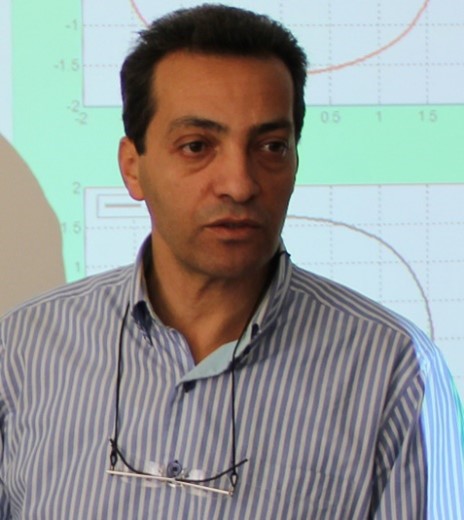
Prof. Anouar Belahcen
Anouar Belahcen (Senior Member, IEEE) received the M.Sc. (Tech.) and Ph.D. (Tech.) degrees from Aalto University (former Helsinki University of Technology), Espoo, Finland, in 1998 and 2004, respectively. He is currently Professor of power and energy with Aalto University, where he has been the Vice Dean of education within the School of Electrical Engineering since 2020. His research interests are numerical modeling of electrical machines, characterization and modeling of magnetic materials, coupled magneto-mechanical problems, magnetic forces, magnetostriction, and fault diagnostics of electrical machines.
A. Belahcen has published more than 160 journal papers and 150 referred conference papers. He is a member of the steering committees or administrative board of several international conferences COMPUMAG (ICS), CEFC, ICEM, EPNC, he has chaired the editorial board of CEFC 2024 edition and served as Editor in Chief for the post-conference publication in the IEEE Transactions on Magnetics. He received several research grants from the Research Council of Finland (RCF) and is now leading a Center of Excellence on High-Speed Electromechanical Energy Conversion Systems (HiECSs), funded by the RCF. He has a substantial experience in research cooperation with academic and industry partners and startups.
Presentation: Characterization and modelling of silicon-steel under multi-axial magnetic and mechanical loading[+]
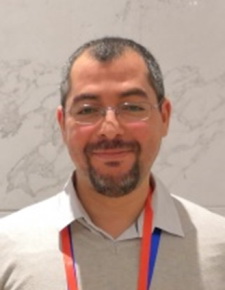
Prof. Abdelkader Benabou
Abdelkader Benabou graduated in material sciences in 1999 and received his Ph.D. degree in electrical engineering in 2002 from the University of Lille in France for research related to the modelling of magnetic hysteresis. After 2 years of post-doctoral position, in 2004 he was nominated Associate Professor in electrical engineering at University of Lille where he continued his research on the magnetic materials within the context of energy conversion devices. Since 2023, he is Full Professor at University of Lille. His current research activities are mainly focused on the characterization and modelling of magnetic materials while accounting for the impact of the manufacturing processes and electrical machine operating conditions on their properties.
Presentation: Some considerations on the evolution of the usage properties of magnetic materials for energy conversion devices: an overview of magnetic aging[+]

Prof. Stéphane Clénet
Since 2002, Stéphane Clénet is professor of electrical engineering at Arts et Métiers Institute of Technology in Lille, France. His is the member of the research team L2EP (https://l2ep.univ-lille.fr/en/) . His research focuses on computational electromagnetics and its application to study and design electrical devices. He is co-author of 120 international journal papers. He always has had strong collaborations with companies (EdF, Valeo, E-motors…) and is currently the coordinator of the EU project MAXIMA on the design a modular axial flux machine, its digital twin and its manufacturing process flow for automobile (https://maxima-he.eu/).
Presentation: Application of CLN method to study magnetoquasistatic and electroquasistatic problems[+]

Prof. Alessandro Formisano
Prof. Alessandro Formisano received the Ph.D. degree in Electrical Engineering from the University of Naples Federico II, Naples, Italy, in 1997. He is currently a Full Professor of Electrical Sciences at the University of Naples Federico II, with six years of seniority in the role. Since joining the Engineering Faculty in 1996, he has been actively teaching both undergraduate and Ph.D. courses in Electrical Circuits and Electromagnetism.
The main research interests are:
-Development of numerical models for electromagnetic coupled problems, plasma identification, and 3D magnetic field analysis in Tokamaks.
-Advanced methods and algorithms for optimal design and inverse problem resolution in quasi-stationary electromagnetism, incorporating both deterministic and stochastic approaches.
-Investigation of the effects of uncertainties in production processes on the performance of electromagnetic devices.
-Application of Artificial Intelligence and Neural Networks to solve direct and inverse problems in electromagnetism.
Presentation: Data-based approaches for electromagnetic problems[+]
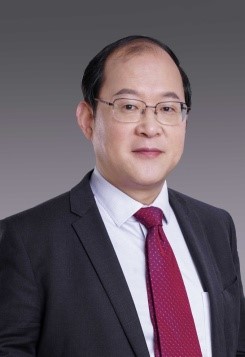
Prof. Weinong Fu
Prof. Fu received his Ph.D. degree in electrical engineering from The Hong Kong Polytechnic University (PolyU), Hong Kong, SAR, China, in 1999. He is a Professor with Shenzhen University of Advanced Technology, Shenzhen, China. He worked as an Associate Professor and a Full Professor at PolyU about 13 years. He was one of the key developers with Ansoft Corporation, Pittsburgh, PA, USA. He has about seven years of working experience at Ansoft, focusing on the development of commercial software Maxwell. He has made many contributions to the theory and application of electromagnetic field computation and electric device design, including the publication of over 290 refereed journal papers. His research interests include computational electromagnetics, optimal design of electric devices, applied electromagnetics, and novel electric machines.
Presentation: Artificial intelligence surrogate model for electromagnetic device simulation[+]
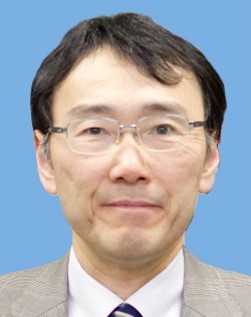
Prof. Hajime Igarashi
He received the B.E. and M.E. degrees in electrical engineering and the Ph.D. degree in engineering from Hokkaido University, Sapporo, Japan, in 1982, 1984, and 1992, respectively. From 1995 to 1997, he worked with Prof. Arnulf Kost at the Technical University of Berlin with the support of the Humboldt Foundation.
He has been a Professor with the Graduate School of Information Science and Technology, Hokkaido University, since 2004. His research interests include computational electromagnetism, design optimization, and artificial intelligence (AI)-based design. He is the Vice President of the International Compumag Society. He is the author of “Topology Optimization and AI-based Design of Power Electronic and Electric Devices”, published by Academic Press in 2024.
Presentation: Case studies on topology optimization and its acceleration with machine learning[+]
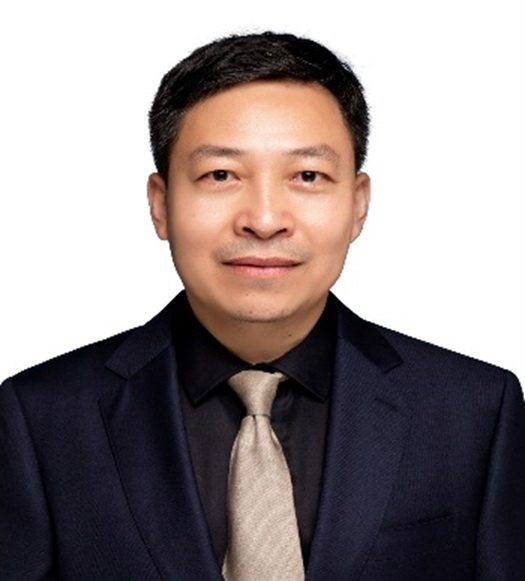
Prof. Yongjian Li
Yongjian Li, Ph.D. is a Professor at the School of Electrical Engineering, Hebei University of Technology, renowned for his expertise in electromagnetic analysis and simulation of high-power electrical systems. With a career dedicated to advancing electrical engineering research, he has led over 20 major national projects, including key initiatives under the National Natural Science Foundation of China and national key R&D programs. His scholarly contributions encompass 100+ SCI publications, three monographs, and 30 authorized invention patents, three of which have achieved commercial success. Recognized for his groundbreaking work, Dr. Li has been awarded the First Prize for Scientific and Technological Progress by Hebei Province and the Chinese Society of Electrotechnical Technology, alongside honors such as the Hebei Outstanding Youth Fund, Hebei Provincial Outstanding Expert, and Tianjin Youth Science and Technology Award. He serves as Director and Vice Chairman of the Professional Committee, China Electrotechnical Society, Director at the Hebei Key Laboratory of Flexible DC Transmission Equipment and Technology, and Vice Chairman of the Hebei Society of Electrical Engineers.
The main research interests are: Deep Belief Networks; Multi-Hysteresis Model Fusion; Three-Dimensional Spatial Hysteresis Model.
Presentation: Hysteresis modelling methods of soft magnetic materials based on deep neural network[+]

Prof. David A. Lowther
David Lowther received his Ph.D. degree in 1973 from Brighton Polytechnic in the United Kingdom before moving to Imperial College, London where he spent 6 years in a post-doctoral position. In 1979 he moved to McGill University in Montreal, Canada as an Associate Professor in the Department of Electrical Engineering and was promoted to Full Professor in 1986. His research relates to the design and analysis of low frequency electromagnetic devices, including applications of artificial intelligence. In 1978, he co-founded Infolytica Corporation which developed computer aided design tools for low frequency systems. The company was acquired by Siemens DISW in 2017 and he is currently a Technical Director in Technology and Innovation at Siemens. He has published over 400 conference and journal papers and is a Fellow of the Institution of Engineering Technology, the Institute of Electrical and Electronic Engineers and the Canadian Academy of Engineering.
Presentation: Machine learning based digital twins in the design of electromagnetic devices[+]
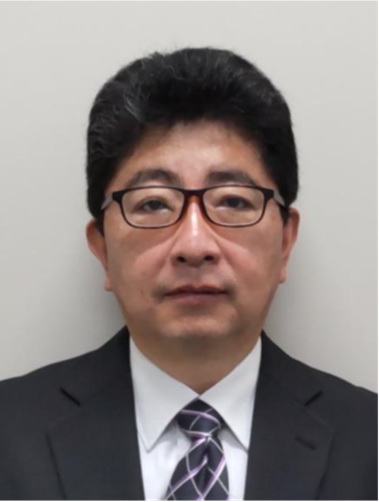
Prof. Kazuhiro Muramatsu
Kazuhiro Muramatsu is a Professor of Department of Electrical and Electronic Engineering at Saga University, Japan since 2008. He was educated at Okayama University and received B.E., M.E., and Ph.D. degrees in 1988, 1990, and 1993, respectively. He was with ALPS Electric Co., Ltd. from 1990 to 1994. He moved to Okayama University from 1994 and worked as an Assistant Professor until 2001. He was a Visiting Researcher at University of Bath, U.K. in 1999 and Grenoble Institute of Technology, France in 2000. He moved to Saga University as an Associate Professor in 2001. His major research topics are the finite element methods for 3-D magnetic and coupled field analyses and their applications on electrical machines and magnetic devices. He has been a member of the ICS Board since 2016 and the chair of IEEJ Investigating R&D Committee of Innovative Technology Development Using Electromagnetic Field Analysis since 2022. He served as a Chinese High-end Foreign Expert.
Presentation: High frequency electromagnetic field analysis of inductor for power electronics[+]

Prof. Zhuoxiang Ren
Dr. Zhuoxiang Ren is a full professor at the Sorbonne Université in France and a guest professor at the Institute of Electrical Engineering of Chinese Academy of Sciences (IEECAS). Prof. Ren has many years of research experiences on numerical modeling of electromagnetic systems and development of EDA tools. He has published over 250 papers in refereed journals and international conferences. He has been awarded a Bronze Medal of CNRS in France in 1996. His research interests include numerical methods for the computation of electromagnetic fields and multi-physics problems, modeling and simulation of microelectronic and electrical devices and systems for various applications.
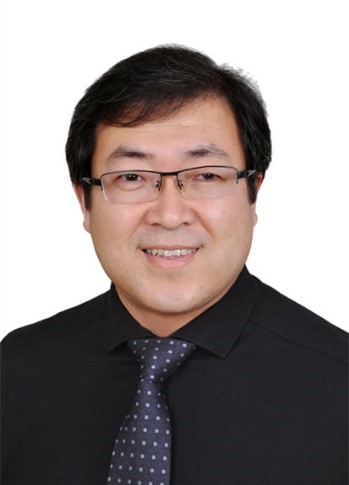
Prof. Shuhong Wang
Professor Wang Shuhong serves as a member of the Teaching Guidance Subcommittee for Fundamental Electrical and Electronic Courses under the Higher Education Institution Committee of the Ministry of Education, a member of the Curriculum Working Committee of the Shaanxi Provincial Higher Education Teaching Guidance Commission, a committee member of both the Applied Superconductivity Technology Committee and the Electrotechnical Theory and New Technology Committee of the China Electrotechnical Society, an IEEE Senior Member, and a participating expert in CIGRE Working Group WG2.60 "Thermal Behavior of Transformers". He has taught two undergraduate specialized foundational courses and one graduate course, receiving the Wang Kuancheng Education Award, two Shaanxi Provincial Teaching Achievement Awards, one Shaanxi Provincial Science and Technology Award, and three university-level teaching achievement awards. His sustained research focuses on simulation, analysis, optimization, and development of electrical equipment, having led two National Natural Science Foundation General Projects, participated in two NSFC Key Projects, directed one sub-project of the National Science and Technology Major Special Program, and overseen a sub-task of the National Key R&D Program. With over 100 peer-reviewed publications including more than 50 SCI-indexed papers, his work appears in IEEE Transactions on Power Systems, Applied Physics Letters, and other prominent journals.
The main research interests are: Application of Multiscale Numerical Computing to Power Equipment; Application of Intelligent Algorithms in Power Equipment.
Presentation: Spatial multi-scale modeling and numerical computation for electric power equipment[+]
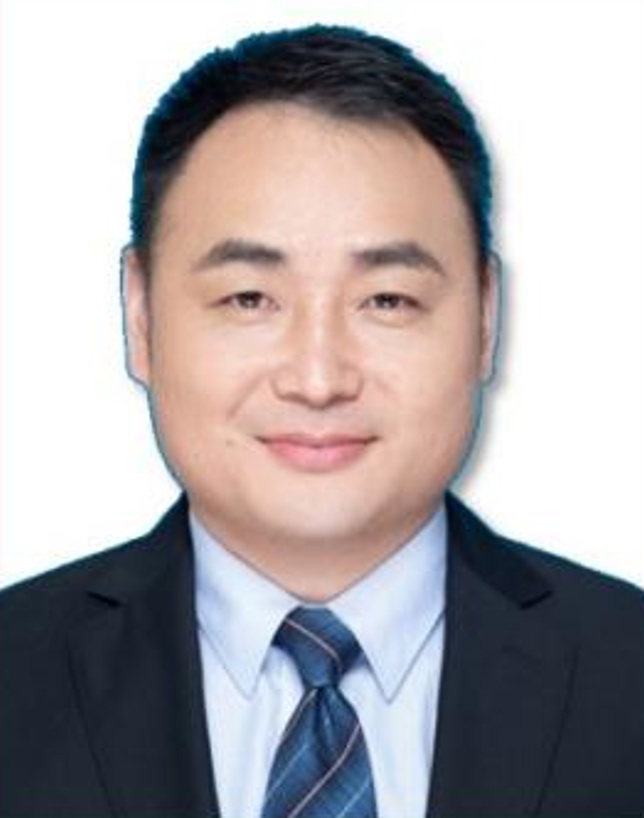
Prof. Fan Yang
Fan Yang is a Professor and Ph.D. Supervisor, currently serving as the Dean of the Graduate School at Chongqing University. He is a recipient of the National Young Talent Program and holds multiple prestigious academic positions, including Vice Chair of the Electrical Theory and New Technology Committee under both the China Electrotechnical Society and the Chinese Society for Electrical Engineering. He also serves as the Secretary of the Electrical Engineering Teaching Advisory Committee of the Ministry of Education, a member of the IEEE PES China Council Education Committee, a member of the CIGRE-C3 China National Committee (Power System Environmental Performance), and Vice Chair of the Electrical Engineering Discipline Teaching Committee of the China Electric Power Education Association. Additionally, he has been recognized as a Young and Middle-aged Key Educator in Chongqing.
His research focuses on electromagnetic imaging, multiphysics field computation for power equipment, and digital twin technology. He has received multiple national and provincial awards for his contributions to education and research, including one First Prize and one Second Prize in National Teaching Achievement Awards, as well as one First Prize and one Second Prize in Chongqing Teaching Achievement Awards. Moreover, he has been honored with a First Prize and a Second Prize in Provincial and Ministerial Science and Technology Awards.
Presentation: Development and key technologies of digital twin platform for power transformers[+]
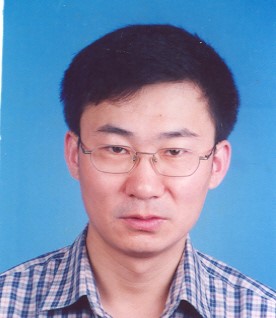
Prof. Shiyou Yang
Shiyou Yang received his M. Eng and PhD degrees in electrical engineering in 1990 and 1995, respectively. He is currently a full professor at the College of Electrical Engineering, Zhejiang university, China. His research interests include Computational Electromagnetics in both high and low frequency domains, and the application of numerical techniques in performance analysis and optimization of electronic and electromagnetic devices.
Presentation: Robust design optimization: uncertainty quantification, problem formulation and numerical methodology[+]
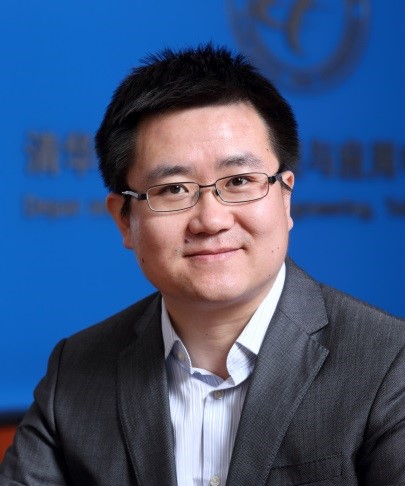
Prof. Bo Zhang
He obtained his B.S. in 1998 and Ph.D. in 2003, both in electrical engineering from North China electric Power University. From 2003 to 2005, he was a post doctor at Tsinghua University, China. And then, he became assistant professor, associate professor and professor at the department of Electrical Engineering, Tsinghua University. Bo Zhang is interested in the numerical calculation of electromagnetic problems in high voltage engineering, intelligent monitoring and diagnosis for power equipment, and EMC in power system. He published more than 100 peer reviewed papers in SCI journals. He is the IEEE Fellow, IET Fellow, convener of CIGRE WGs C4.50 and B2.89, vice chair of IEEE WGs P2869 and P2970. He is the secretary of Steering Committee of Asia-Pacific International Conference on Lightning. He was awarded the Excellent Youth Fund of National Natural Science Foundation of China in 2013, the 34th Scientific Committee Award of the International Conference on Lightning Protection in 2018, and the IEEE EMC Technical achievement award in 2019.
Presentation: Self-sensing technology based on multiphysics collaboration and its application in online monitoring of overhead transmission lines[+]
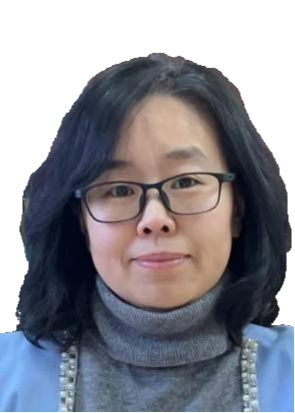
Prof. Yanli Zhang
Yanli Zhang obtained her B.Eng., M.Eng., and Ph.D. degrees from Shenyang University of Technology in Shenyang in 1998, 2001, and 2006 respectively. From 2007 to 2008, she served as a Post-Doctoral Fellow in the Department of Electrical Engineering at Chungbuk National University (CBNU) in Korea. From 2018 to 2019, she worked as a Visiting Professor in the Department of Electrical and Computer Engineering at Florida International University (FIU) in Miami, Florida, USA. Since 2013, Dr. Yanli Zhang has been a professor at the School of Electrical Engineering of Shenyang University of Technology. Currently, she is a committee member of the Electrical Engineering Theory and New Technology Special Committee of the China Electrotechnical Society. Her current research interests encompass the theory, numerical analysis methods, as well as the design, simulation, and optimization of power conversion and transmission equipment.
The main research interests are: Measurement and modeling of electromagnetic properties of ferromagnetic materials; Numerical simulation of electromagnetic field and multi-physics field; Design, simulation, and optimization of power conversion and transmission equipment.
Presentation: Regulation, measurement and modeling of magnetic properties of soft magnetic material and the fast computation method of electromagnetic field[+]
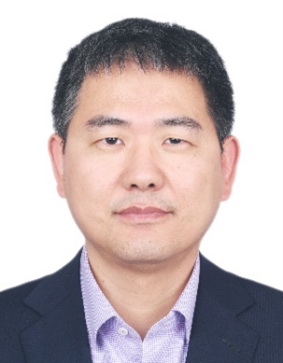
Prof. Xiaojun Zhao
Xiaojun Zhao (Member, IEEE) received the B.Sc. degree in electrical engineering from North China Electric Power University, in 2006, and received the Ph.D. degree in electrical engineering from North China Electric Power University, in 2011. He is currently a professor and a vice dean in Department of Electrical Engineering, North China Electric Power University, and the vice director of Hebei Province Key Laboratory of Green and Efficient Advanced Electrical Materials and Equipment.
The main research interests are: Modelling of soft magnetic materials; Computational electromagnetics; Vibration and noise simulation of magnetic materials.
Presentation: Modelling of electromagnetic properties of electrical steel and application of harmonic balance finite element method[+]
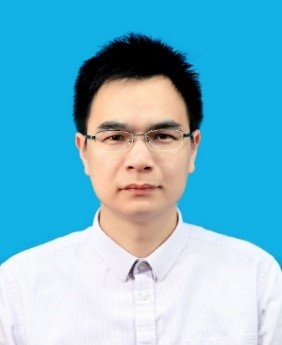
Prof. Yanpu Zhao
Yanpu Zhao (Senior Member, IEEE) majored in computational mathematics and obtained his B.S. degree in 2006 from Hebei University of Technology and M.S. degree in 2009 from Nankai University. He obtained the PhD degree from PolyU in Electrical Engineering in 2015. In May 2016, he joined ANSYS Inc. (Canonsburg) as a Senior Research and Development Engineer, developing ANSYS Maxwell 3D electromagnetic field simulation software. Since July 2019, he has been a full professor in the School of Electrical Engineering and Automation of Wuhan University.
His research interests include computational electromagnetics and multiphysics, optimal design of electromagnetic devices, high order and flexible finite element methods, low-frequency stable full wave Maxwell solvers, and numerical techniques for field-circuit-motion coupled analysis problems. He has published 40 journal papers and authored one monograph on low-frequency computational electromagnetics.
Presentation: Enhancing multiphysical field computation methods for industrial applications[+]
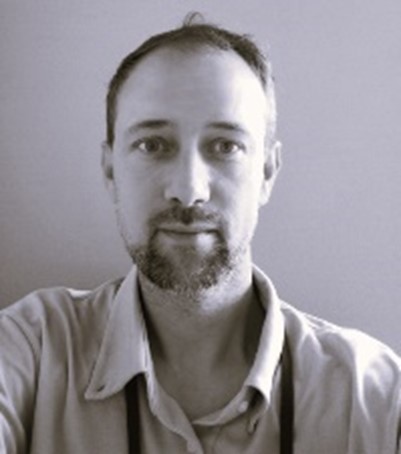
Dr. Benjamin Ducharne
Benjamin Ducharne received his MSc and PhD degrees in electrical engineering from Claude Bernard University Lyon 1, Villeurbanne, France, in 2001 and 2003, respectively. In 2004, he joined the Montefiore Institute in Liège, Belgium, as a postdoctoral researcher. In 2005, he was appointed as an Associate Professor at INSA Lyon, France. From 2018 to 2019, he was a Visiting Scholar and mid-term Lecturer at Purdue University, West Lafayette, IN, USA. Since 2020, he has been a full-time researcher at ELyTMaX, Tohoku University, Sendai, Japan. His research focuses on magnetic non-destructive testing, ferromagnetic and ferroelectric materials, hysteresis modeling, fractional operators, and multiphysics coupling.
Presentation: Viscoelastic modeling of magnetic losses using fractional derivative operators[+]
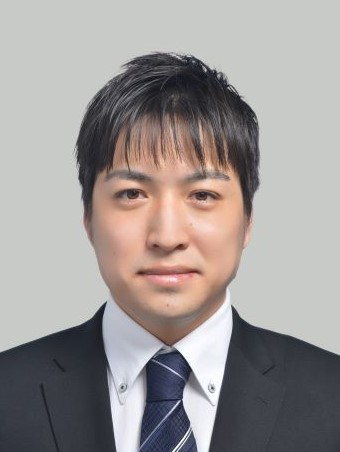
Dr. Hidenori Sasaki
Hidenori Sasaki received the Ph.D. degree in engineering from Hokkaido University, Sapporo, Japan in 2021. He was an Engineer with the Advanced Technology Research and Development Center of Mitsubishi Electric, Amagasaki, Japan. He has been a Lecturer with Hosei University, Tokyo, Japan since 2021. His research interests include the design optimization of electrical systems, topology optimization, and machine learning for electromagnetics.
Presentation: Accelerating topology optimization of interior permanent magnet synchronous motor using deep generative models[+]
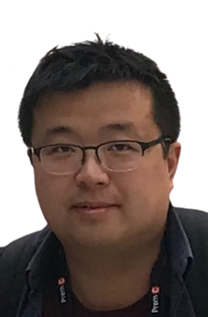
Dr. Zuqi Tang
Zuqi Tang is an Associate Professor in the Department of Electrical Engineering at the University of Lille, France. He received his B.S. in Pure Mathematics from Wuhan University, China, in 2007, followed by an M.S. in Applied Mathematics in 2009 and a Ph.D. in Electrical Engineering in 2012, both from the University of Lille 1. After completing postdoctoral fellowships at Électricité de France (EDF) and INRIA Paris-Rocquencourt (2012–2015), he served as an Assistant Researcher at CNRS (2015–2017). Since 2017, he has held a tenured position at the University of Lille, and in 2023, he obtained the French Habilitation à Diriger des Recherches (HDR), which qualifies him to supervise doctoral research.
His research focuses on numerical modeling and analysis in computational electromagnetism, with a recent emphasis on developing numerical tools for the Darwin model and exploring various numerical techniques in the context of digital twins, particularly the application of deep learning techniques in surrogate model construction.
Presentation: Towards purely parameter-specific surrogate model construction in the context of digital twins: a tensor decomposition-based approach[+]
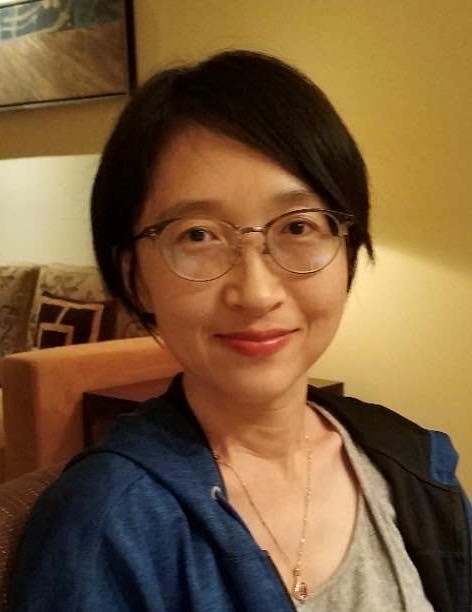
Dr. Shuai Yan
Shuai Yan is currently an associate researcher in Institute of Electrical Engineering, Chinese Academy of Sciences. She received B.S. and M.S. degree in Mathematics from Beijing Normal University, China in 2007 and 2010 respectively. In 2014, She received her Ph.D. degree in Computational Engineering in Friedrich-Alexander-Universität Erlangen-Nürnberg (FAU), Germany. She has authored over 30 peer-reviewed papers in international journals, and serves as a reviewer for several academic journals in the computational electromagnetics community. She also serves as a key developper for the software platform for electromagnetic and multi-physics coupling analysis, EMPbridge.
The main research interests are: Algorithms and software in computational electromagnetics; Model order reduction; Artificial intelligence in scientific computing.
Presentation: Efficient and high-fidelity physical state evaluation: a survey of meta-modeling techniques for digital twins[+]